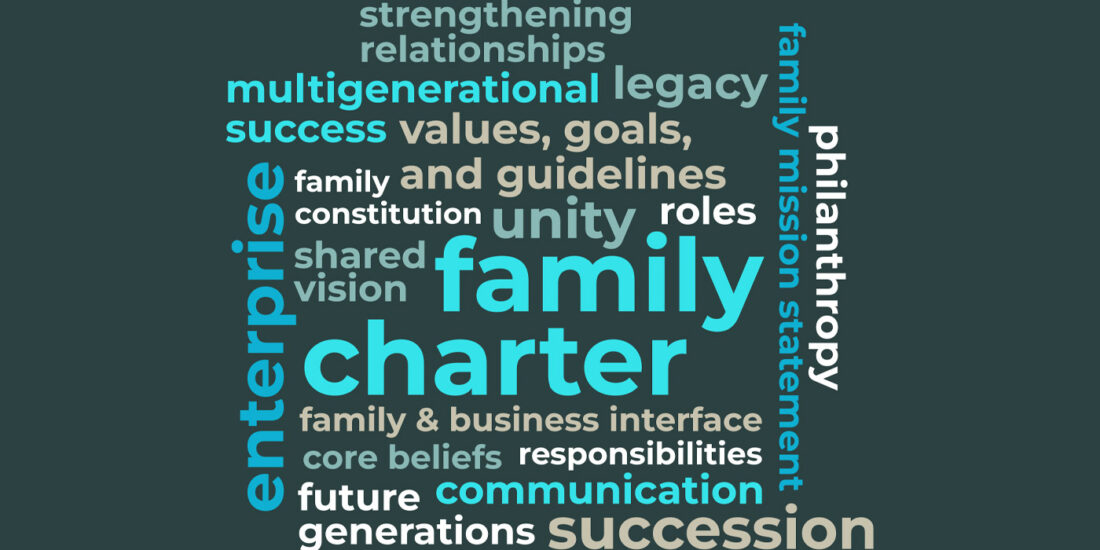A Triple Requirement for Family Businesses
Thanks to Sylvain Daudel of the EDHEC Family Business Center for a thoughtful article and practical advice on how to increase the inter-generational transmission rate in a complex, global, competitive and uncertain environment.
Yours in Practice,
The Practitioner
The ultimate goal for a family business is to remain as such, i.e. to continue as a company and be successfully transmitted to the next generation. And if ways and solutions are unique to each family firm, the issues are similar to many… and the challenge awesome, if we consider the low inter-generation transmission rate.
Within a more complex, global, competitive and uncertain environment, the modern family business faces a triple requirement: Competitive Imperative, Leadership Excellence and Efficient Governance.
Competitive Imperative
Being competitive requires a fine analysis of the environment and anticipation of changes, understanding and mastering the critical processes that drive and enhance one’s competitive advantage. For any company it means identifying and reinforcing in the production cycle those elements that contribute to create the specific value that is recognized and priced by the market. It is the resolve to preserve and strengthen one’s position through innovation. It is the implementation of the strategy with agility.
It is true for any company; it is particularly true for family businesses!
Additionally family firms need to take into account other singular characteristics; some may be strengths to exploit, other weaknesses to reduce – and we do not pretend to be exhaustive here. Whatever the – sometimes surprising – degree of diversification or internationalization they present, family businesses are often profoundly rooted in their original trade and exhibit strong prudential behaviors. It seems then legitimate to put the issue of openness at the heart of their strategy. This openness needs for instance to be evaluated, in terms of products, technology, territories and competencies.
Due to a different cost of capital from widely-held capital companies, the notion of openness is also encountered in corporate finance strategies needed to attend the company growth. Often benefitting from less leverage, being more frugal and less submitted to short term results, family businesses can generate the key investments for competitiveness including those deemed necessary for the next generation.
How should they integrate in their strategic design the often higher loyalty from employees and sometimes from customers, the high retention rate that allows a better preservation of ‘know how’ and better transfer of competencies? How to leverage speedy decision-making and execution when communication is more fluid, power games and silos less present?
Leadership Excellence
Efficient management can be defined as the art of getting maximum performance with minimum inputs. And many a company fails, efficiently (!), meeting solely short term goals. On the other hand, leaders recognize the importance of a long term vision. They boldly welcome and embrace change to pursue ambitious objectives. With charisma or lack of it, but with respect and integrity, they personalize their vision and transform groups of individuals into motivated teams. For their followers, leaders are a source of inspiration and commitment.
For Family Businesses, Leadership Excellence is linked to the legitimacy of the leader. Be the leader a member of the family or external to the family, his/her legitimacy comes from his/her competence in terms of managerial practices as well as his/her capacity to embody, share and maintain the values coming from the family business history. For the family firm, more than any other, legitimacy rhymes with longevity. The succession issue becomes an exercise we only do every twenty-five years that compares to five years for other companies – to give a range. Thus family businesses have clearly less experience in the search for potential successors and their leadership transmission, although the stakes are higher.
To these challenges of legitimacy, longevity and transmission we add the challenge of responsibility and accountability. The leader of a typical widely-held capital company bears this important responsibility for a limited time – thus he/she reduces even more imputing bad decisions to his/her predecessor and delegating the difficult ones to his/her successor.
Higher accountability is expected from the family firm leader — much more so, as family and employees alike will often cherish the charisma and vision of the preceding generations, their entrepreneurship spirit and business acumen. For, after all, they have indeed succeeded in their essential role — transmitting the family business.
Efficient Governance
Governance is often defined as the process by which decisions are made, implemented and supervised. This separation of the three powers is often written in states’ constitutions (legislative, executive and judiciary powers) but is rarely found at the private company level. Thanks only to an efficient governance can some companies actually limit the information asymmetry between decision makers and the supervising body. Those companies listed on the Stock Exchange also benefit from a regulatory incitation to improve – at least in theory – the transparency of their activities towards their stakeholders. In that respect, efficient governance needs to take into account the adequate use of natural resources and the protection of the environment.
Within family businesses, when the company and the family develop, actors and interests multiply. Decisions cannot be taken in informal family gatherings. It becomes necessary to build an appropriate governance system that allows separating and unifying altogether the voices of the shareholders, the family and the management.
The invitation of members, external to the family, will help the supervisory board in its mission. Finally, vigilance must be exerted to constantly reinforce the cohesion and commitment of the shareholding family with all possible tools to ultimately improve their ‘Affectio Societatis,’ the desire to create business together.
Within this triple requirement of Competitive Imperative, Leadership Excellence and Efficient Governance, the three elements are not as separate as written. Leadership Excellence can lead to Efficient Governance and often contributes to the performance of the company in the market. And Efficient Governance will facilitate the identification of an exceptional leader…etc. They nourish each other to contribute together to the continuity goal of the family business.
About the contributor:
 Sylvain Daudel is the director of the EDHEC Family Business Centre in Lille, France. He will be presenting “How to Assess Top Executive Leadership in Family Firms: The case of the leadership inventory for family firm executives” at the global conference in October. Sylvain can be reached at [email protected].
Sylvain Daudel is the director of the EDHEC Family Business Centre in Lille, France. He will be presenting “How to Assess Top Executive Leadership in Family Firms: The case of the leadership inventory for family firm executives” at the global conference in October. Sylvain can be reached at [email protected].
To apply for an FFI/EDHEC scholarship for the FFI GEN program and the EDHEC GEMBA, go here. Deadline for applications is June 20, 2015.




